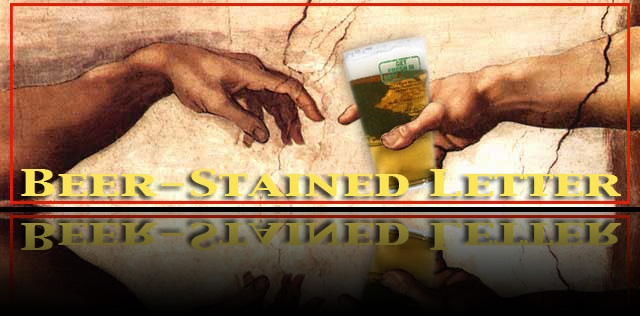From speakeasy to craft beer bar
 Don't stop us if you've heard this one before. It's about a former speakeasy.
Don't stop us if you've heard this one before. It's about a former speakeasy.
Those places really never were well-kept secrets, except from the law, and then only when bribes didn't work. Word gets around. And around.
So, with the 78th anniversary of beer becoming legal again, April 7th is a fitting time to spread word about Murphy's Suds & Sawdust, a pint-sized bar (if you'll pardon the pun) that began as an oasis for the thirsty yoked into a dry world by the 18th Amendment – and still exists to celebrate that heritage.
The Prohibition Era gives Murphy's a certain cachet. But what makes the bar modern-day unique is its location: the basement of a Victorian Colonial-style house in a quiet residential neighborhood in Rumson, a 5.2-square-mile upscale town situated between the Shrewsbury and Navesink rivers in Monmouth County.
After Prohibition, the tavern stayed put as the town grew around it and town hall wrote rules for where you could and couldn't put such establishments (i.e. not in basements of homes). A retired postal worker now lives above the bar that's fire code rated at a 50-person capacity, and parking at Murphy's means you're probably pulling up in front of a neighboring house. One of the town's business avenues is just a 200-yard walk west of the bar.
What makes Murphy's a cozy, welcoming haunt is not just its size, but its proprietors. Heather Vena, 36, and Robb McMahon, 47, are two veterans of the area's bar and service industry who were handpicked to become custodians of the Murphy's story and tend to the locals who make the tavern their go-to place.
Heather Vena, 36, and Robb McMahon, 47, are two veterans of the area's bar and service industry who were handpicked to become custodians of the Murphy's story and tend to the locals who make the tavern their go-to place.
"Their grandfathers drank here. They'd come in after work and drink here; now their kids are drinking here," Robb says. "There's a lineage to it."
A lineage that comes with responsibilities. "Nobody wants to be the one who screws up Murphy's," Robb says.
Murphy's began its run as a tavern on the down-low when booze was given an unpopular 13-year timeout under the Volstead Act. The congressional measure passed in 1919 set the rules for the 18th Amendment's ban on the once-legitimate liquor, beer and wine industries. Taking its shorthand title from Andrew Volstead, the Minnesota congressman with a push-broom mustache who served as the legislative front for the temperance crew that actually authored the anti-booze rules, the Volstead Act took effect in January 1920, outlawing the manufacture and transportation of intoxicating alcoholic beverages.
Taking its shorthand title from Andrew Volstead, the Minnesota congressman with a push-broom mustache who served as the legislative front for the temperance crew that actually authored the anti-booze rules, the Volstead Act took effect in January 1920, outlawing the manufacture and transportation of intoxicating alcoholic beverages.
It didn't, however, prohibit drinking a cocktail or two. Provided you could find it.
That's where Fred André's family comes in. The Andrés started the basement tavern, looking to slake Rumson's thirst without being too obvious.
"That's why it's located where it is, in the cellar," says Fred, 68, a lifelong Rumson resident who retired from AT&T/ Lucent Technology and now works for the town's zoning office. "It would never be permitted today where it is."
Fred was just a babe of 2 when his dad died. So, much of the lore about the speakeasy was passed onto him by his now-deceased mom.
She told him stories about liquor and beer being made in a garage behind the house on the 4,300-square foot property. The stuff didn't exactly taste good, Fred recalls his mom telling him. A carpenter who helped make the tavern's beer was always trying to drink it before it was ready, he says. Boat owners from nearby towns would meet up with rum-runners offshore to bring booze back to town.
"Oldtimers here were runners and took their boats out. But a lot of that went out of Highlands and Sea Bright," Fred says. "That's where a lot of the risk was, and the money."
In as much as the cellar was intended to be the bar's cover, the tavern wasn't exactly a secret.
"It was known to the people in town. The authorities knew it. My mother told me you didn't get into trouble so long as you sold it on premises," Fred says. "Another tavern in town got busted for selling off premises."
The tavern went legitimate after Prohibition's repeal in 1933. Beer became legal April 7 that year as an initial step toward washing away the failure of legislating morality. By Dec. 5 that year, with ratification of the 21st Amendment, Prohibition was beginning its existence as a constitutional footnote.
In the 1940s, the Andrés' once-furtive enterprise changed hands, winding up with the Murphy family (hence the bar's name), which ran the place successfully for quite some time, until the family matriarch, Mary Murphy, died several years ago and the business was sold. "She was an old woman by the time I met her," Robb says. The bar was "very much a neighbor's basement back then. She'd walk downstairs, turn a light on outside the door. The light goes on, she was open, and you'd come in. And if she got tired, she'd say, 'Well, fellas it's time for me to go to bed,' and everybody would clean up and leave and she'd go back upstairs."
"She was an old woman by the time I met her," Robb says. The bar was "very much a neighbor's basement back then. She'd walk downstairs, turn a light on outside the door. The light goes on, she was open, and you'd come in. And if she got tired, she'd say, 'Well, fellas it's time for me to go to bed,' and everybody would clean up and leave and she'd go back upstairs."
When the place changed hands again, it ended up with the owners of Val's Tavern, another bar in town. Dave Ciambrone and Gerald Goodman bought Murphy's largely as a real estate deal.
Ciambrone and Goodman refurbished the place with new cabinets, a new bar and floor. Robb, who knew Heather from when they both worked at separate establishments (Dublin House and Downtown Café) in nearby Red Bank, tended bar at Val's and took some shifts in Murphy's at the owners' behest. He invited Heather, recently returned from a summer working in Italy, to come guest-bartend on Mondays for service industry night.
The duo drew good crowds, and the owners approached them with the idea of taking over the bar. "I didn't take him all that seriously," Robb says. "But then he (Dave Ciambrone) got us together and said, 'We can make this work.' So we worked out a lease agreement, and they gave us some time to get some capital together, and we all sat down with the lawyers."
"I didn't take him all that seriously," Robb says. "But then he (Dave Ciambrone) got us together and said, 'We can make this work.' So we worked out a lease agreement, and they gave us some time to get some capital together, and we all sat down with the lawyers."
That was in mid-2006.
"It was a passing of the baton," Robb continues. "Everybody wants to do right by Murphy's. One of the reasons we were handpicked is because there were other people involved ... doing like a cigar club or taking it over as a private thing for a sporting group or something like that."
Protecting a legacy like Murphy's is almost as unique as a basement tavern in a tony shore town. "In this business that's very rare," Robb says. "They could have made more money than they did off of us."
Under Heather and Robb (he grew up in Rumson, she in Asbury Park), Murphy's is as modern as as a tiny tavern can be – a widescreen TV over the bar, a digital TouchTunes jukebox near the entrance.
Yet the ambiance speaks to bygone eras as well: a shuffle board game (circa 1955) stands along a wall opposite the bar, while pictures of classic New York Yankees days (Ruth, Gehrig, Mantle, DiMaggio) and Marilyn Monroe hang above it. The decor reflects Heather and Robb's personalities.
"Ever since I was a little girl, I have been fascinated by her," Heather says. "Gentlemen Prefer Blondes would be on regular TV, and I'd just be glued to the set." Murphy's opens at 4 p.m., and a typical flow of patrons is usually three different crowds: blue collars and retirees come in early, drinking Pabst and Bud, followed by couples out for the evening and looking for a nightcap; late night is the younger crowd and service industry crews just off work.
Murphy's opens at 4 p.m., and a typical flow of patrons is usually three different crowds: blue collars and retirees come in early, drinking Pabst and Bud, followed by couples out for the evening and looking for a nightcap; late night is the younger crowd and service industry crews just off work.
"We never close early; we're here until 2 (a.m.) seven days a week," Heather says. "All the other bars in town, if they're not busy, they close. Everyone knows they can come here for one last pop."
In warm weather, it's not usual to see dogs hitched to fixtures outside, waiting on owners to finish their drinks. "You should see what good husbands live in this area, taking their dogs for walks. If we put a swingset in back ..." Heather jokes.
Bottled beers at Murphy's run the familiar gamut of Coors, Yuengling, Samuel Adams, PBR, Corona and Ballantine. On their four taps (they'd love to have at least two more, Heather says) you'll find Guinness (it replaced, you can guess, Murphy's stout), Miller Lite (a domestic light is a necessity, Robb says), Pilsner Urquell and a rotating craft beer.
"We've had Blue Point, the Toasted Lager, and then we had Hoptical Illusion ... (Dogfish Head) the 90 Minute. I was surprised when we put it on. You learn about your clientele. The kids, the 25 to 30s and just out of college, they knew it right away. They're on their phones going 'They got Dogfish Head!' "
Baseball's opening day is celebrated with a big bash, and Robb and Heather still make a point to send some love the way of their fellow service industry colleagues. The bar's Prohibition past has been given only mild attention (it's highlighted on their Facebook page and in an image on their menu). But doing a Prohibition-theme night is a distinct possibility.
"Now that we're getting a little more savvy, getting a Web page, we're going to try to do a Prohibition night, dress for it, have the right music, the '20s," Robb says. "Heather would make a good flapper. I could wax up the 'stache, put on a butcher's apron."
CONTACT INFO: Murphy's Suds & Sawdust, 17 Ward Lane, Rumson. 732-842-1600.












2 comments:
Great story! If it wasn't so late tonite, I'd try to go & find it!...maybe tomorrow though.
Great Mustaches in the pictures! Awesome article.
Post a Comment